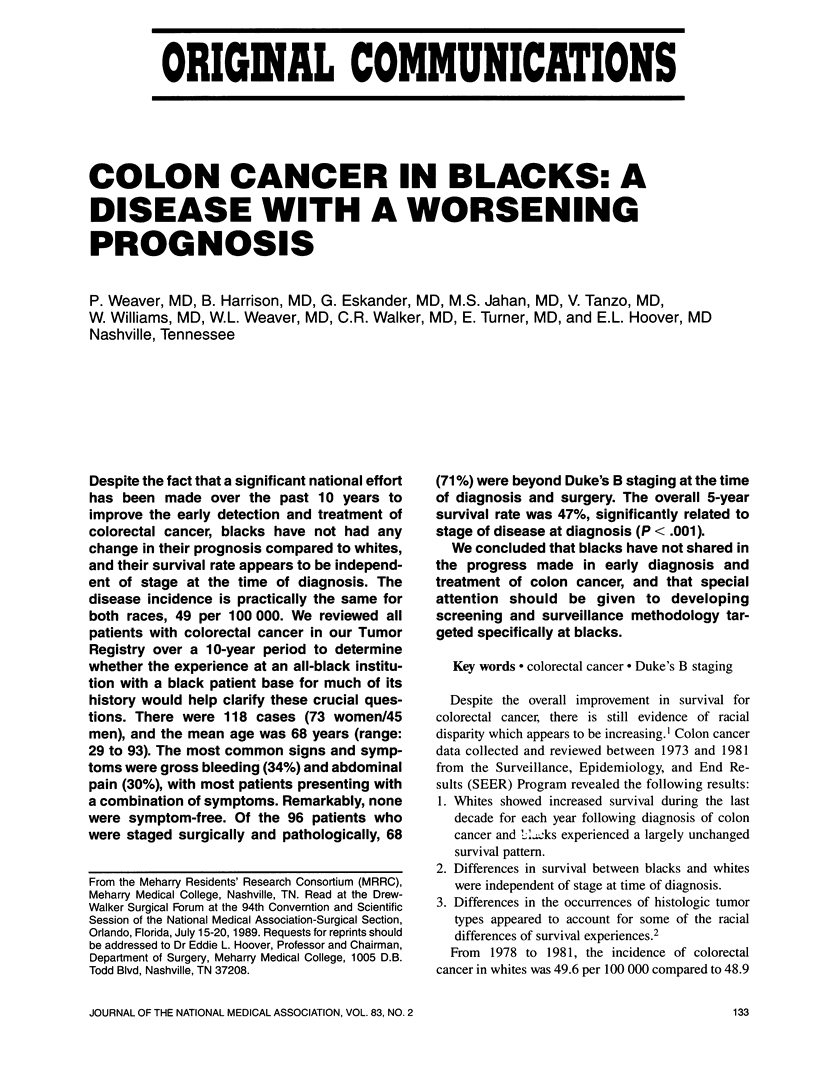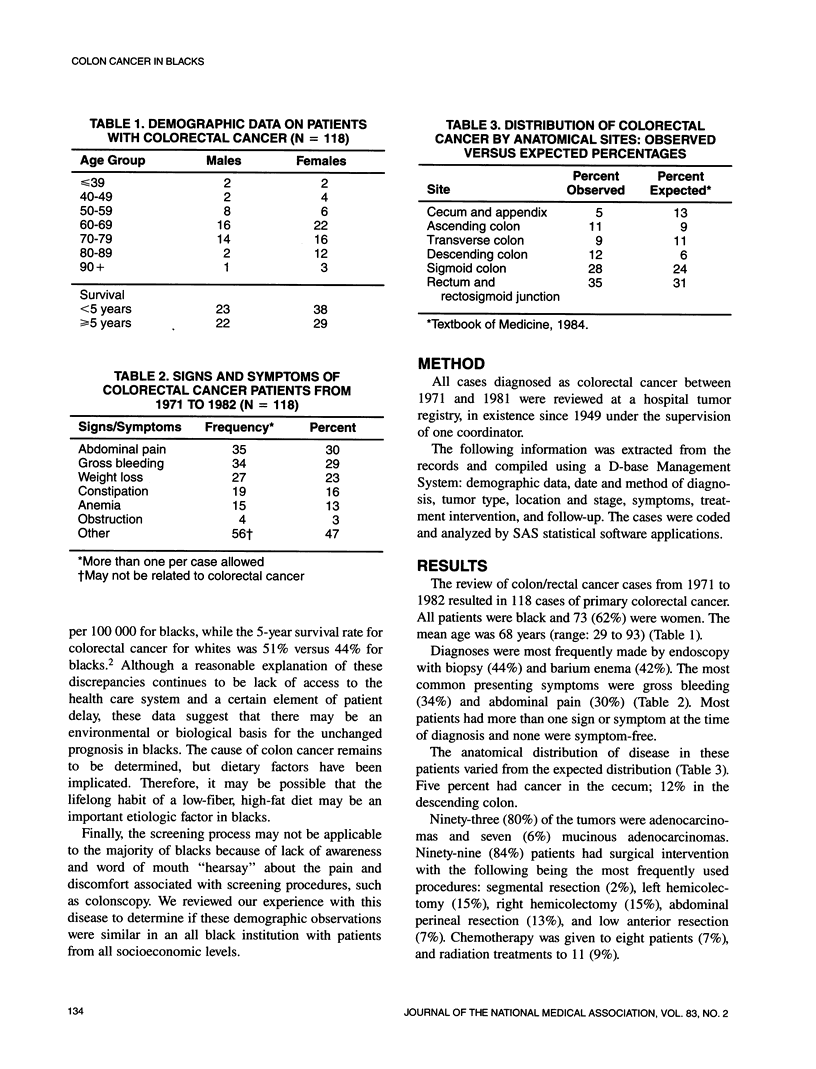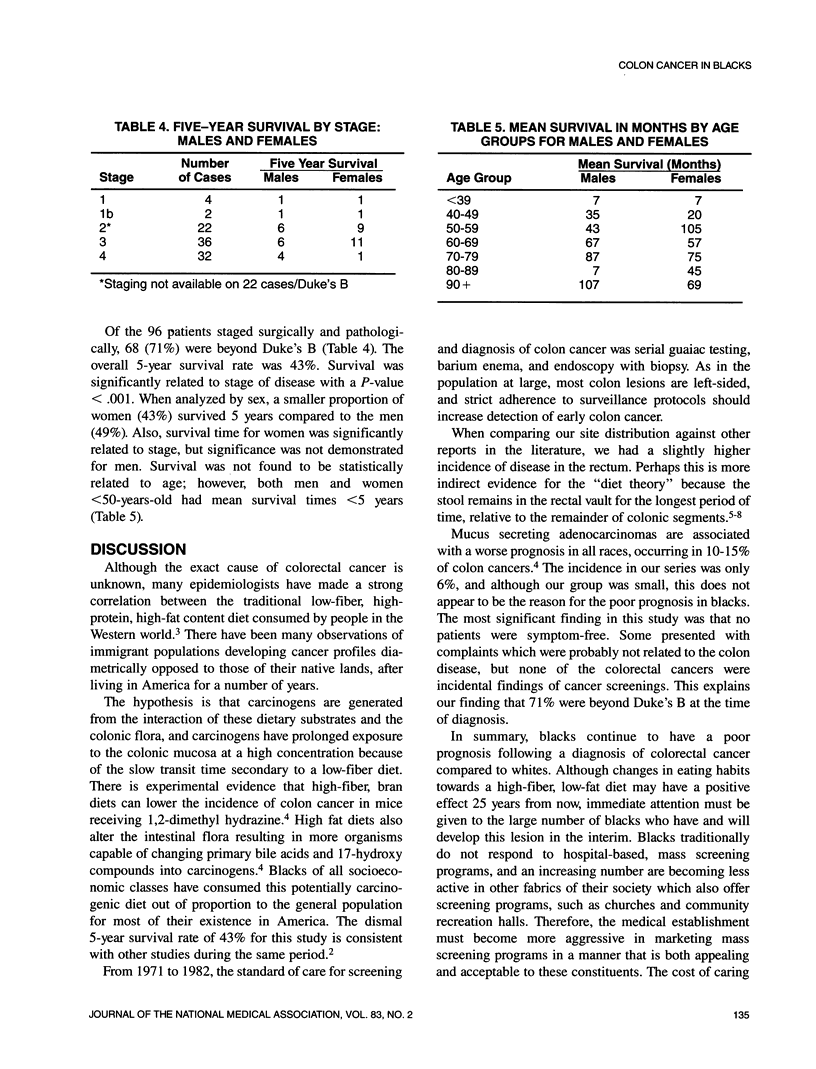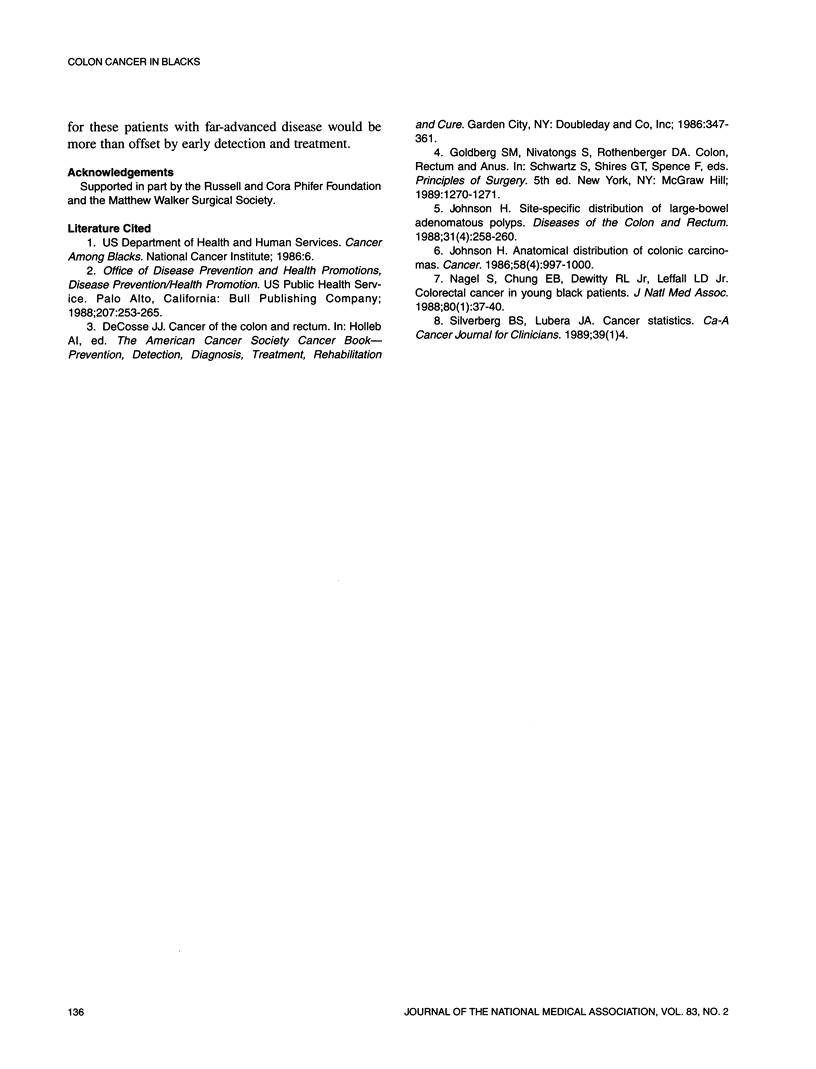Abstract
Despite the fact that a significant national effort has been made over the past 10 years to improve the early detection and treatment of colorectal cancer, blacks have not had any change in their prognosis compared to whites, and their survival rate appears to be independent of stage at the time of diagnosis. The disease incidence is practically the same for both races, 49 per 100,000. We reviewed all patients with colorectal cancer in our Tumor Registry over a 10-year period to determine whether the experience at an all-black institution with a black patient base for much of its history would help clarify these crucial questions. There were 118 cases (73 women/45 men), and the mean age was 68 years (range: 29 to 93). The most common signs and symptoms were gross bleeding (34%) and abdominal pain (30%), with most patients presenting with a combination of symptoms. Remarkably, none were symptom-free. Of the 96 patients who were staged surgically and pathologically, 68 (71%) were beyond Duke's B staging at the time of diagnosis and surgery. The overall 5-year survival rate was 47%, significantly related to stage of disease at diagnosis (P less than .001). We concluded that blacks have not shared in the progress made in early diagnosis and treatment of colon cancer, and that special attention should be given to developing screening and surveillance methodology targeted specifically at blacks.
Full text
PDF



Selected References
These references are in PubMed. This may not be the complete list of references from this article.
- Johnson H., Jr, Carstens R. Anatomical distribution of colonic carcinomas. Interracial differences in a community hospital population. Cancer. 1986 Aug 15;58(4):997–1000. doi: 10.1002/1097-0142(19860815)58:4<997::aid-cncr2820580435>3.0.co;2-2. [DOI] [PubMed] [Google Scholar]
- Nagel S., Chung E. B., DeWitty R. L., Jr, Leffall L. D., Jr Colorectal cancer in young black patients. J Natl Med Assoc. 1988 Jan;80(1):37–40. [PMC free article] [PubMed] [Google Scholar]


